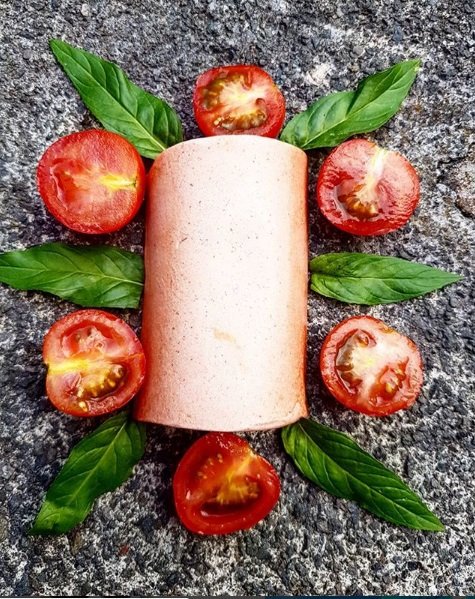Tomato Soap
Have you seen this, have you heard about this? Soap made with/from tomatoes. I’m skeptical, but open to being convinced.
Naturally the first thing I did was curl up on my futon and watch a YouTube video about making tomato soap. The ingredients were pureed tomatoes (in place of water), lye, clay, and an oil blend (the oil used determines the hardness of the soap) . Oh, and some fragrant oil, infused with paprika and coriander.
My main thing is - does it work? Does it kill harmful bacteria? If I get poop on my hands, am I going to get pink eye even after washing my hands?
As far as I can tell, there’s lye and oil, so I guess it’s soap. Seems legit. Mostly there’s lye.
The video does mention that preservatives are commonly used in plant-based soaps, which they don’t use. Tomatoes are acidic, and they don’t take a lot to make shelf-stable…seems like something that doesn’t matter, up until the person says, “I’ve never had a mold problem in 21 years…”
NOPE. Any time someone starts to justify their practice (or malpractice) by saying, “I’ve been doing it this way for 20 years” , the conclusion they’ve drawn is pretty much always wrong. I’ll spend the $10 to get some sodium benzoate, or whatever stops soap from molding.
I’m sure the tomatoes are fine, tbh, but come on, even if those are herbs are dried, they become a party for bacterial growth once they take on moisture.
Now, going back to the tomato soap up at the top of the page, the one you can buy right now, I see that it’s made with goat’s milk. This requires investigation. Let’s see what the internet tells us about goat milk soaps….
-Is Goat Milk Soap Antibacterial?
-Yes, goat milk soap is antibacterial.
In summary, goat milk soap (in bar form or as a liquid soap) doesn't actually kill germs-
-How Does Goat Milk Soap Kill Bacteria?
-The lactic acid in goat milk soap helps to kill bacteria.
Antibacterial soaps should be avoided because they contain potentially harmful chemicals, promote antibiotic resistance, lead to weaker immune systems, are bad for the environment, and are not any more effective than natural goat milk soap.
-What are the advantages of lactic acid bacteria?
-They can kill undesirable bacteria and make food safer.
Alright, pause.
I envy the kid who gets his mouth washed out with this.
Alright, so we can conclude that it doesn’t matter what the soap is made of (as long as it isn’t moldy). Other vegetables can be used, too. Beets, basil, coconut…anything that can be pureed and has moisture. Then it will replace a percentage of the water used in the soap-making process.
I assume the goat’s milk replaces the oil, as some type of fat seems to be a key part of how soap is soap. YouTube mentioned butter at one point, but I was doing racisms on Twitter by then.




